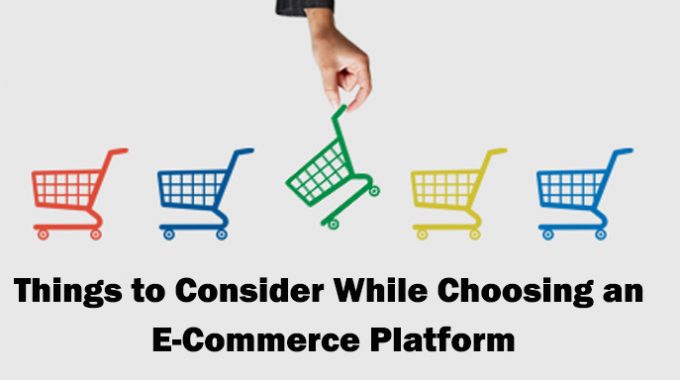With most eCommerce platforms on an upswing, it is no wonder that everyone wants to get on board the cash cow, and set up their own shop.
Moreover, as recent studies have shown, most of the online customers have started to use smart phones to shop online, and this has naturally lead to an explosion of eCommerce transactions online with the gross expected to cross $4 trillion by 2020.
And with the global population becoming increasingly net savvy, this would be the perfect time, if not the right time for you to launch your shop online.
While your decision to launch your shop online may seem easy enough, the actual process can be a tad overwhelming, not to mention confusing.
For example, there are multiple platforms that you can use to set up your shop online, from Woo commerce Vs. Shopify Vs. Magento. These are some of the top ranking platforms, but which one do you use for your shop?
For when it comes to a question of Woo commerce vs. Shopify vs. Magento, you would find that each differs from the other.
But there are a few factors that you may want to consider that can help you choose from Woo commerce to shopify and Magento or you can always pick out some other platform to use, for your shop.
Read: Why Social Media Marketing Is Beneficial for eCommerce Websites?
Check out the various points/ tips that you need to consider, when evaluating various platforms.
- The pricing and the budget:
Since you are planning to set up an eCommerce portal, the first thing that you would need to consider is the pricing of the various platforms. You may want to know that each platform comes with its own unique pricing plan, which generally includes a free basic package, as well as a premium package.
For example, when you consider Woo commerce vs. Shopify vs. Magento, you should know that each one of these platforms comes with a unique pricing strategy for their platform.
For example, Woo commerce platform is a free eCommerce platform that also happens to come with free updates – apart from this, it also comes with a premium version, where the pricing for a single platform ranges from $49.
Magento comes with two pricing structures, the first one is a community edition which starts for free, and the other, which is available for business and enterprise – you will have to contact Magento directly to enquire about the pricing.
What this means is that for business and enterprise websites, Magento renders a different rate for each website depending on their stats. And then, there’s Shopify which starts with a free two week trial after which you can opt for the basic package at $29 or opt for the premium edition at $279.
- Integrations and plugins:
When selecting an eCommerce portal, the first thing that you need to check, apart from pricing and functionality is to see if the said platform is compatible with third party plugins.
The one reason that you would want to opt for platforms that are responsive and compatible with third party plugins, is that you can provide your customers with more user centric features, such as social media plugins, etc.
Read: The Ultimate Collection of Free WordPress eCommerce and Shop Themes 2020
- SEO:
It goes without saying that you would need your online eCommerce shop to be compatible with the latest SEO plugins, so that your website as a whole, is optimized for the same.
This is all the more important as it can help you rank better on SERPs which in turn can help boost your online traffic as well. It is therefore essential that you opt for a platform that enables you to integrate the best SEO plugins with your website as this can enable you to optimize your website for SEO, with ease.
- Mobile compatibility:
When it comes to top ranking eCommerce platforms, you may want to do a comparison test, and weigh Woo commerce vs. Shopify vs. Magento.
This should enable you to determine which one suits you better; here’s one factor that you would want to consider when evaluating these platforms and others like them.
You may want to first check and find out if the platform in question is mobile friendly and that it is responsive so that online users can access your website, without any loss of functionality in any form.
- Scalability:
This is something that you would definitely have to consider, when selecting the right platform for your online shop. Your website is bound to expand in the near future and given this, it only makes sense that you would want to opt for a scalable solution as that can enable you to expand and grow your website with less hassle.
- Security:
Online security is important and the same holds true for your shop as well; your customers may want to feel reassured that your website is safe enough to shop on and that all their current information would be held safe and secure. You may want to opt for platforms that provide you with enhanced security with HTTPS/SSL.
- Customer service:
Customer service is important part of any business and the same holds true for your online shop as well.
You must attend to all customer queries and answer the same in real time and that is why it is essential that you opt for a platform that can enable you to connect better with your users and one that can help you integrate various customer related services with the rest of your website.
These are some of the things that you need to keep in mind when evaluating the various eCommerce platforms. Just remember that each platform is unique and comes with its own brand of uniqueness that makes it stand out.
You need to evaluate the various platforms, their core functionalities and determine as to which suits you better. And please note, that only some of the eCommerce platforms require a small payment where as others, such as Woo commerce offer free basic packages that you can best utilize to setup your website.





